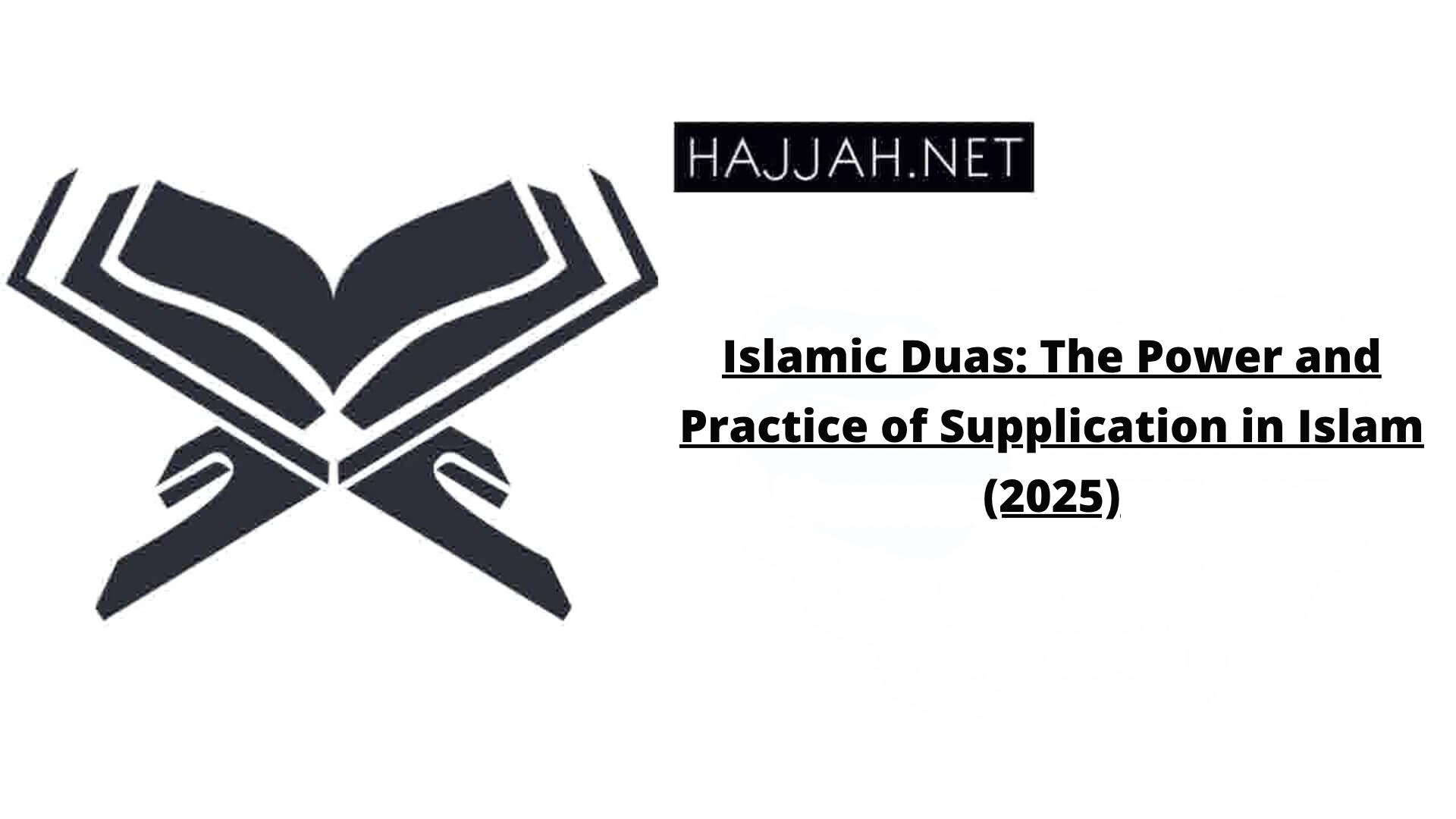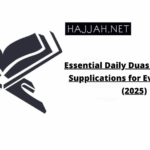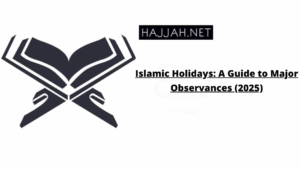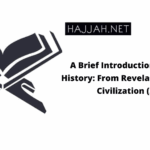In the heart of Islamic practice lies Du’a – the simple yet profound act of supplication, of calling upon Allah (God). It is a direct conversation between the servant and their Creator, a moment of vulnerability, hope, and reliance. Far more than just asking for needs, Du’a encompasses praise, gratitude, seeking forgiveness, asking for guidance, and seeking protection. It is considered an act of worship (Ibadah) in itself and is one of the most powerful tools available to a Muslim for navigating life’s challenges and drawing closer to Allah. This article explores the meaning, immense importance, etiquette, and provides examples of common Islamic Du’as.
What is Du’a in Islam?
Du’a literally means “calling” or “summons.” In the Islamic context, it refers to supplicating to Allah, invoking Him for assistance, asking for His blessings, seeking His forgiveness, or simply expressing one’s needs and dependence upon Him. It acknowledges that Allah is the source of all power and goodness, and that believers are reliant upon Him for everything.
The Quran repeatedly emphasizes the importance of making Du’a:
Also Read
“And your Lord says, ‘Call upon Me; I will respond to you.’…” (Quran 40:60 – Ghafir)
Furthermore, the Prophet Muhammad (peace be upon him) highlighted its significance, stating in various narrations that “Du’a is worship” (Tirmidhi, Abu Dawud) and even “Du’a is the essence of worship” (Tirmidhi).
Distinction from Salah: While Du’a can be made at any time and in any language, it is distinct from Salah, the five daily obligatory ritual prayers performed in Arabic with specific postures and recitations. However, Du’a is an integral part of Salah (e.g., during prostration) and is highly recommended after completing the prescribed prayers.
The Importance and Benefits of Making Du’a
Engaging in Du’a is not merely about getting what you want; it carries deep spiritual benefits:
- An Act of Worship: Directly fulfills Allah’s command to call upon Him.
- Strengthens Relationship with Allah: Fosters a personal, direct connection and reliance on the Creator.
- Source of Comfort, Hope, and Relief: Provides immense psychological and spiritual comfort, especially during times of hardship, sadness, or anxiety.
- Manifestation of Humility: Acknowledges one’s own limitations and dependence on Allah’s power and mercy.
- Expression of Trust (Tawakkul): Shows reliance on Allah’s plan and His ability to provide.
- Potential to Influence Decree: While Allah’s knowledge is absolute, Du’a is a means through which His decree unfolds, and sincere supplication can influence outcomes by His will.
- A Means to Earn Rewards: Allah rewards the believer for the act of supplicating itself, regardless of the immediate outcome.
Etiquette (Adab) of Making Du’a
While Du’a can be made simply anytime, observing certain etiquette can enhance its sincerity and potential for acceptance:
- Sincerity (Ikhlas): Making Du’a purely for the sake of Allah.
- Begin with Praise (Hamd) and Salawat: Start by praising Allah (e.g., saying Alhamdulillah) and sending blessings (Salawat) upon the Prophet Muhammad (PBUH).
- Raise Hands: It is a recommended Sunnah to raise one’s hands during supplication.
- Face the Qiblah: Facing the direction of the Ka’bah in Makkah is recommended when possible.
- Have Firm Faith (Yaqeen): Believe firmly that Allah hears your Du’a and is capable of answering it in the way He knows is best.
- Ask with Humility and Urgency: Supplicate with a humble heart, acknowledging need, and persist in asking.
- Repeat the Du’a: Repeating the supplication (e.g., three times) is a practice found in the Sunnah.
- Ask for Good: Supplicate only for things that are permissible (Halal) and good.
- Conclude with Salawat and Praise: End the Du’a by again sending blessings on the Prophet (PBUH) and praising Allah.
- Patience (Sabr): Understand that Allah may answer immediately, delay the answer for a better time, avert a harm instead, or store the reward for the Hereafter. Do not become impatient or despair of His mercy.
Times and Situations When Du’a is Especially Encouraged/Accepted
While Du’a can be made anytime, certain times and situations are mentioned in Islamic texts as being particularly blessed for supplication:
- The last third of the night.
- Between the Adhan (call to prayer) and the Iqamah (call to commence prayer).
- During prostration (Sujud) in Salah.
- On Friday (Yawm al-Jumu’ah), especially the last hour before sunset.
- During the month of Ramadan, especially on Laylat al-Qadr (The Night of Decree).
- While travelling.
- When it is raining.
- When breaking one’s fast.
- When experiencing injustice or hardship.
- When drinking Zamzam water.
Examples of Common and Prophetic Du’as
The Quran and Sunnah are rich with beautiful supplications. Here are just a few examples:
- For Forgiveness: “Astaghfirullah” (I seek forgiveness from Allah) or the comprehensive Sayyid al-Istighfar.
- For Guidance: “Allahumma inni as’alukal-huda wat-tuqa wal-‘afafa wal-ghina.” (O Allah, I ask You for guidance, piety, chastity, and self-sufficiency). (Sahih Muslim)
- For Protection: Ayat al-Kursi (Quran 2:255) or “A’udhu bi kalimatillahit-tammati min sharri ma khalaq.” (I seek refuge in the perfect words of Allah from the evil of what He has created). (Sahih Muslim)
- For Parents: “Rabbirhamhuma kama rabbayani sagheera.” (My Lord, have mercy upon them as they brought me up [when I was] small). (Quran 17:24)
- Before Eating: “Bismillah.” (In the name of Allah).
- After Eating: “Alhamdulillah alladhi at’amani hadha wa razaqanihi min ghayri hawlin minni wa la quwwah.” (Praise be to Allah Who has fed me this and provided it for me without any strength or power on my part). (Tirmidhi – Hasan)
- For Distress (Dua of Yunus AS): “La ilaha illa anta subhanaka inni kuntu minaz-zalimin.” (There is no deity except You; exalted are You. Indeed, I have been of the wrongdoers). (Quran 21:87)
- For Knowledge: “Rabbi zidni ‘ilma.” (My Lord, increase me in knowledge). (Quran 20:114)
(Many resources compile authentic Du’as for various occasions).
Conclusion
Du’a is the essence of worship, the believer’s most potent tool, and a direct expression of faith and reliance on Allah. It is a deeply personal and accessible act, available to every Muslim at any time, in any place. By understanding its importance, observing its etiquette, and utilizing the powerful supplications taught in the Quran and Sunnah, Muslims can seek guidance, forgiveness, protection, comfort, and relief for all their needs, strengthening their bond with their Creator in the process. Making regular, sincere Du’a is key to navigating life with faith, hope, and tranquility.








